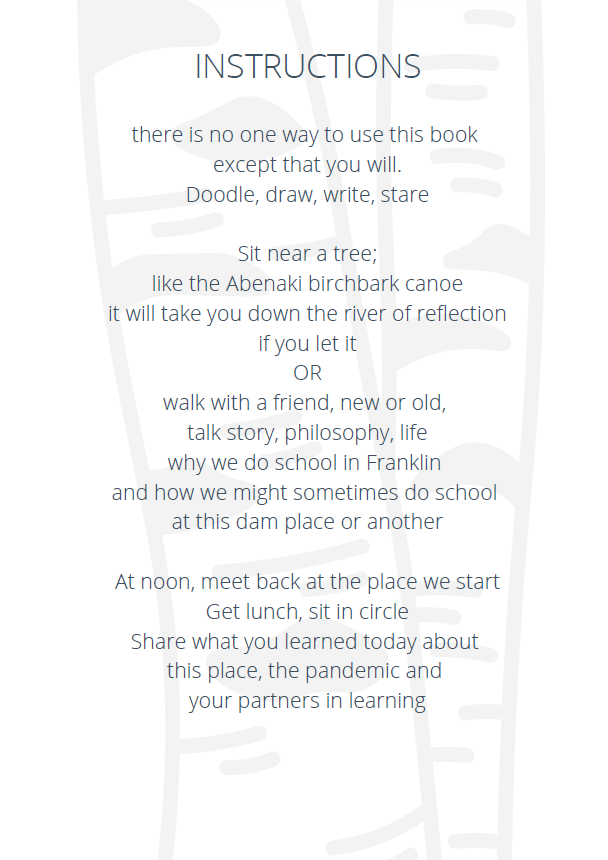“We should have a widespread, diverse set of student and parent voices from around the state providing honest feedback about what’s working and what’s not in public schools. And we should use that information to improve a system that is so vital to democracy.”
Jesus' Education Was Competency Based
Part 3: The Process for Competency Design
We use this graphic to communicate the process for competency development.
What Standards Does PragerU meet?
Part 2: Competency Based Education, by any other Name is still Competency Based Education
A Competency Based Assessment Primer for NH: Part 1
Reflecting is Professional Development
Making a Move to Competency Based Education? Stop Celebrating the GPA Now
Let's Get Honest About Our Systems in NH
While Ryan Terrell makes some good points in his recent essay "Teachers Do Deserve More, but NH Schools Aren't Underfunded," many of them are without full context and miss the mark. And, similar to his uncouth assessment of a professional educator in the Manchester School District, he offers no solutions except to simply ignore realities such as systemic racism and our current system's structure.
I'd like to offer a new conversation, an honest one, that doesn't ignore the lived experiences of our community members. Let's earnestly look how our system functions and consider how structures are hindering everyone from making real educational progress.
First, we have to be willing to do an honest assessment of where we are and where we hope to be. Honestly, we need to recognize systemic racism and stop trying to hide it under a rug.
The truth is, interpersonal racism still exists and most NH teachers don't have the skills to address it in their schools, in part because they've had the privilege not to have experienced racism themselves.
This interpersonal racism is exhibited in many ways including use of derogatory words, slights, as well as implicit bias we all hold and explicit bias that some extreme members of our community hold. If a student is receiving these negative energies from others on a daily basis, whether it's intended or not, that student is not being afforded even an adequate learning environment.
When this interpersonal racism overflows into policy and practice, we see systemic racism and discrimination.
Need some evidence? It exists, but we don't collect it. When a kid uses the N word in casual conversation, they might get a consequence, but it's not necessarily recorded or recorded in such a way that we could understand how many times derogatory language is used in a school. At best, that data collection would be based only on what teachers witness anyway.
All to say, when folks say systemic racism doesn't exist in our schools and BIPOC students say "Yes it does", the next logical step would be to collect data.
That is part of the work of our DEIJ professionals. Local school districts who have introduced these positions are responding to data they've received from current learners, alumni and teachers. Their work is to help name the injustice and educate their school community so that each NH child has access to a free adequate education.
The long term goal should be that everyone has the skills, knowledge and will to recognize and address injustice when they see it, and to help repair the harm. I think DEIJ directors would actually prefer a NH where their role was no longer needed. That's just not where we're at in most NH schools and so we need folks to lead this work and be the educators that our educators never had.
We should be lifting up and supporting change ideas, not knocking them down before they have a chance. These positions are new in NH. Let's give it a few school cycles, allow folks some freedom to have difficult conversations and collect some data before we start critiquing the efficacy or worth of these positions.
A second critique I have of of Mr. Terrell's argument is on teacher salaries compared to Massachsettes. The numbers may be right, but Massachusetts is a completely different system soup to nuts.
Based solely on their numbers their teachers unions are stronger and have more bargaining power. If NH had ten districts instead of over one hundred, our teacher salaries would look a lot different. In fact, our insistence and pride around local control and our school funding formula has ensured salaries stay low and communities are pitted against one another.
And if Mr. Terrell wants NH teachers to be more like their Massachusetts peers, perhaps we should also take a look at the conversations they are having. Teachers there have a level of competency and comfort with conversations about implicit bias and systemic racism far above that of NH educators because they're facing their truths. I'm not saying they're perfect, but they've been engaged in some real learning and don't have laws that create barriers to honest conversations.
Finally, when talking about schools in New Hampshire, we can't use one broad stroke. No two districts are alike. Yes, some of our superintendents are making more than they should, and some probably aren't making enough. But honestly, with a shortage of administrators, they have negotiating power. In a country that celebrates a free market economy, this should be no surprise. Unfortunately, this supply and demand issue will not affect the teacher salaries in some districts and the support salaries in all districts. And it won't affect salaries, because of the NH school system's structure and that it is indeed underfunded.











